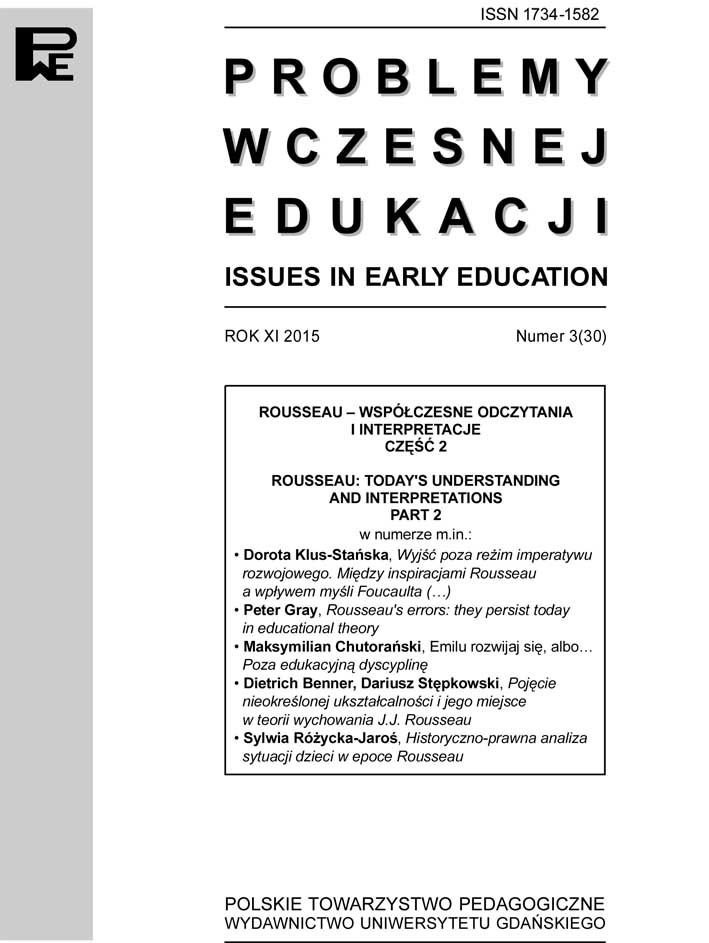Pojęcie ukształcalności i jego miejsce w teorii wychowania Jeana Jacquesa Rousseau
DOI:
https://doi.org/10.5604/01.3001.0008.9214Słowa kluczowe:
Rousseau, kształcenie, ukształcalność, teoria wychowaniaAbstrakt
The philosophical and pedagogical work of Jean Jacques Rousseau still raises many disputes and polemical debates. In this article, the authors focus on only one concept – perfectibilité, which is, according to them, the key to understanding his theories. By using the concept of perfectibilité, Rousseau defines the ambivalent characteristic of modern man, i.e., his ontological need to learn. The article consists of three parts. In the first, the authors try to locate the concept of perfectibilité in Rousseau’s philosophical and pedagogical texts. In the second, the meaning of the term is reconstructed in relation to the conditions of becoming a man. Finally, in the third, the project of upbringing and education from Rousseau’s Emil is re-read.

 Uniwersyteckie Czasopisma Naukowe
Uniwersyteckie Czasopisma Naukowe





